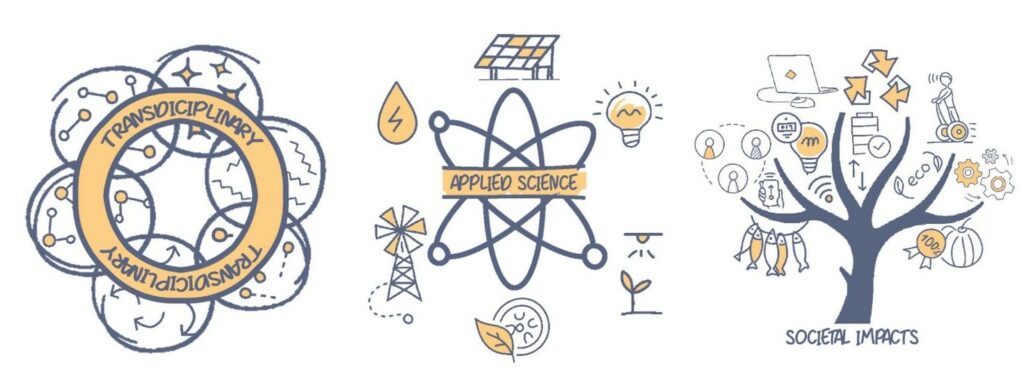Coalition for Advancing Research Assessment (CoARA, CoARA Agreement 2024) aims to maximize the quality and impact of research by developing research assessment practices. Like practically all Finnish higher education institutions, Laurea University of Applied Sciences (UAS) has signed the CoARA agreement and is committed to promoting the CoARA commitments in research evaluation.
 Photo by Jakub Żerdzicki on Unsplash
Photo by Jakub Żerdzicki on Unsplash
Long-standing research traditions and evaluation practices steer researchers’ career development and research funding. Today, research and researcher assessment is largely based on publications. Evaluation practices come in different flavours, but quantitative measures (such as the number of publications, journal impact factors, or researcher indexes) have a disproportionally big impact on the evaluation outcome.
Another key focus area of CoARA is diversity. Diversity is not only about different merits but also about e.g. language, gender, ethnicity, and career stage. Research evaluation should consider all relevant dimensions of research – not only publications. From an individual researcher’s point of view, evaluation practices between all relevant stakeholders should be aligned. The practices should be transparent, predictable, and developed in collaboration with researchers, research leaders, funders as well as HR in stakeholder organizations.
CoARA Working Groups advance fair research evaluation
CoARA Working Groups (WGs, n=13, CoARA WGs 2024) are international expert communities that each focus on a specific research assessment challenge. Different stakeholders, including researchers, research support, human relations, funders as well as representatives from authorities and NGOs participate in the WGs.
Laurea UAS is a member of the Transformations WG (Figure 1), which is further divided into three sub-WGs: 1. Transdisciplinary research 2. Applied/practice-based research and 3. Societal impacts. Laurea UAS participates in the sub-WG of applied/practice-based research that is led by Dr Thomas Brunotte (Hochschullehrerbund, Germany) and Dr Martin Jaekel (Zürcher Hochschule für Angewandte Wissenschaften, Switzerland).
 Figure 1. The workgroup (WG) Transformations is divided into three sub-WGs that each focus on a distinct, but closely related topic. The sub-WGs are 1. Transdisciplinary 2. Applied/Practice-based research and 3. Societal Impacts.
Figure 1. The workgroup (WG) Transformations is divided into three sub-WGs that each focus on a distinct, but closely related topic. The sub-WGs are 1. Transdisciplinary 2. Applied/Practice-based research and 3. Societal Impacts.
The image has been created by and used with permission from Estradivari (Leibniz Center for Tropical Marine Research (ZMT) representing the Societal Impact sub-WG)
Together with Dr Tino Johansson (University of Helsinki, representing the sub-WG of transdisciplinary research), I was given the possibility to represent our WG in the WG co-chairs meeting in Helsinki, House of Science and Letters, on the 11th of September in 2024. This first WG co-chairs meeting brought together all CoARA WGs and enabled discussions about the cross-cutting themes and, the outputs and future impact of the WG activities.
Organization of CoARA WGs
CoARA WGs are organized bottom up. In 2023, all CoARA signatories were offered the possibility to suggest a WG to focus on a certain, well-defined challenge in research assessment. The suggestions were reviewed by the CoARA secretariat and the currently operational WGs were formed in negotiations between the CoARA secretariat and the actors.
The bottom-up approach has led us to a situation where many of the WGs work on overlapping themes. Examples of recurring themes are e.g. challenges regarding the inappropriate use of metrics, evaluation biases, impact assessment, and career development issues. The bottom-up approach allows the CoARA community to discuss each topic from a wide range of different angles, but at the same time, it leads to duplicated efforts. The co-chairs forum agreed that there is an evident need for synthesizing the different outputs. The discussion on how this will be achieved will be continued.
R&D activities as research merits
As defined in Finnish law, the role of UASes is geared towards regional impact and multi-actor networks with less emphasis on academic research. Finnish UASes typically implement development-oriented projects that are supported by applied/practice-based research. These research and development (R&D) projects return significant regional societal and economic impact.
The practice-based orientation is reflected in the UASes’ R&D assessment criteria. Typically, during the recruitment process, an array of defined professional and personal qualities is considered to find the best match for a specific position. Academic publications and merits are considered when appropriate, but they do not dominate the process. (Kelkka 2023)
Despite clear societal and/or economic impact, the development-oriented R&D activities do not necessarily yield merits that are considered as academically heavy. As of today, this unfortunately hinders inter-organizational researcher mobility between UASes and traditional research universities. Years in R&D work make it challenging to return to an academic career path. It will be interesting to see whether this will change during the coming decades.
What kind of change is realistic?
Practically all CoARA activities are performed in the participant organizations without external funding. As I see it, the most important short-term outcome of the CoARA process is to increase awareness and foster discussion on good research assessment practices.
There is a large body of information about research evaluation – high-quality research on research has been practiced for decades. CoARA’s goal is to raise awareness and find consensus on what supports quality and impact and what to avoid. I think Michael Ochsner (Swiss Centre of Expertise in the Social Sciences) summarized the challenge brilliantly: ”CoaRA is an amplifier of existing things.”
To conclude, CoARA aims to improve the quality and impact of research by pursuing fair and transparent research assessment practices that are based on commonly accepted, diverse, and appropriate assessment criteria.
References: